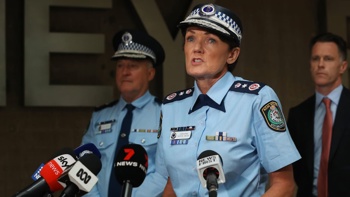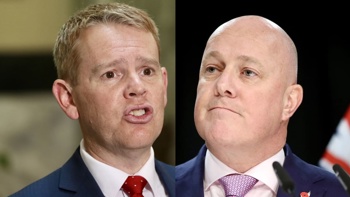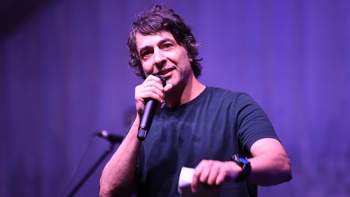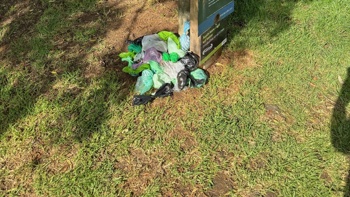A Whangārei man says Air New Zealand is being hypocritical after turning him down for a role because of his tā moko while covering their uniforms and planes with koru designs.
Sydney Heremaia, 36, had applied for a customer service agent role last month with the national carrier at Whangārei Airport.
While applying online he disclosed that he had a tā moko on his left shoulder, and tatau, a Samoan form of skin art, on his right forearm. Both were not visible while wearing a corporate shirt.
Heremaia said he was then asked to provide photos and to explain the cultural significance of them, which he did.
An Air New Zealand representative then sent him an email, viewed by the Herald, that said he was being turned down for the job because "the body art you have declared does not comply with our Uniform Standards for roles wearing the Koru Uniform".
It was suggested he could apply for other roles that did not require the Koru uniform, but did not say if the tā moko and tatau would be an issue.
Heremaia told the Herald they were not "body art" and reflected his culture and heritage.
"I have had the tā moko for 15 years, since my papa died. It reflects my iwi Ngāti Whātua, and my whānau. My tatau reflects my Pacific heritage."
Heremaia said the whole process had made him feel "s*** for being Māori".
/arc-anglerfish-syd-prod-nzme.s3.amazonaws.com/public/T6ONQ2BTOZFJVIT6GAMKJQYO2E.jpg)
"I don't know if they have made a mistake, but I felt like s*** when they called it body art. I have had it since my papa died 15 years ago, he handed it to me. Whenever someone says, 'Cool tattoo bro', I explain it is tā moko. So to have Air New Zealand call it body art made me feel s*** for being Māori."
Heremaia said the difference between tā moko and a tattoo was like comparing a hijab and a head scarf. One was integral to his culture and his identity, while the other was more of an accessory.
"It is not like a rose or a skull head."
He had worked the past five years with the Ministry of Social Development.
He left that job to start a bachelor's degree in social work at NorthTec, and was applying for the Air New Zealand role for some part-time work.
"I have never been asked about my tā moko before, it has never been an issue."
Heremaia said it was hypocritical for Air New Zealand to not allow tā moko on staff when they used koru designs on their uniforms and planes.
"If they can put it on those things why can't we have it on our skin? It is almost like they are saying we embrace and celebrate te ao Māori, but only when it suits us.
"But for me te ao Māori is everywhere, I can't choose when and where I practise it."
An Air NZ spokeswoman said the airline's uniform standard was well known. Uniformed customer facing staff are not permitted to have tattoos visible when wearing the uniform.
The policy was clearly stated on the company's careers website, which advised applicants to declare their tattoos and the matter would be discussed.
The spokeswoman also said privacy requirements meant the company could not comment specifically on an individual's employment application.
A Human Rights Commission spokeswoman said a person of Māori descent could not be denied employment, entry to premises, or declined service because they wore moko visibly.
"Traditional Māori moko is an expression and celebration of Māori culture and identity.
"The Human Rights Act makes it unlawful to discriminate based on race or ethnicity.
"Some forms of tattoo are so closely associated with a particular ethnic or racial group that the marking is enough to identify a person as belonging to that group.
"Where there is a close or recognised link, like a facial moko, tā moko or tatau, then it can be discriminatory to deny the wearer the opportunity for employment.
The commission's advice to employers was to use their common sense in identifying moko, rather than seeking to question the authenticity of the moko or the ethnicity of the person with the moko.
Anybody who had been turned away for a job because of their moko could contact the commission for assistance.
In 2013 a Māori woman complained after being turned down for an Air New Zealand air hostess role because of her tā moko.
Air New Zealand said at the time it did not allow them as some passengers "would not feel comfortable", regardless of whether the tattoos were considered to be cultural or otherwise.
Then-Prime Minister John Key said he disagreed with the airline's argument it could put off tourists.
"It would be a problem if it did because a lot of the Māori events they go to, there are lots of tattoos."
Take your Radio, Podcasts and Music with you









